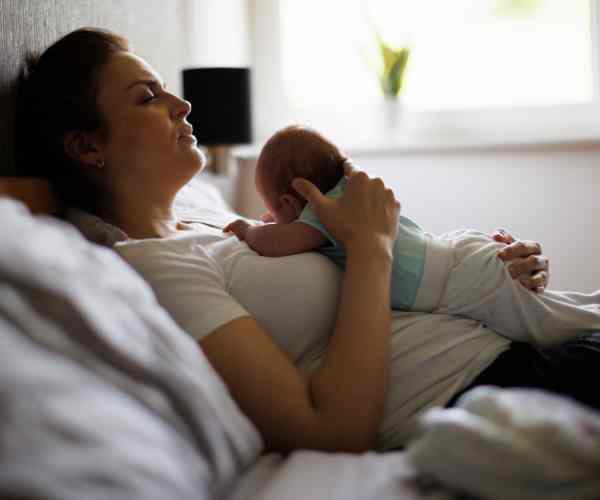Emotional Changes in Pregnancy: Pregnancy is a time of physical and hormonal changes as well as new feelings, so Understanding Your Feelings encourages future moms to explore this aspect of pregnancy and fetal development. Oh, this roller coaster of emotions of becoming a parent is really not a myth—happiness, worries, mood swings, or whatever is in between! As for pregnancy, many women and their male companions will have more dramatic changes in their emotional state than in their bodies.

Emotional Swings
There is much more to pregnancy than the physical aspect; it is indeed an emotional one. Mood swings – This is more of a temperamental issue that the sufferer goes through some emotional up and down ride. It is usually due to changes in hormone levels, including progesterone and estrogen, which affect the neurotransmitters in the human brain and help decide emotional steadiness. Focusing on a healthy pregnancy, these hormones fluctuate and trigger excitement in some moods, as well as causing worry or even moments of sadness. Just knowing that these feelings are normal may be comforting for many after having basically passed their first mammogram test.
Mental Health and Emotional Stability
This is a beautiful period for a woman, but the cost to her mental health should not be underestimated. Research data show that nine percent of women may have prenatal or postpartum depressive disorders, which may require further mental support and coping. It is very important that a woman’s mental health is sound during pregnancy since mental health affects physical health and pregnancy outcomes. High quality of life, stable emotional state, and help from relatives, friends, or doctors may be significantly helpful during these periods.
Key Topics We’ll Cover
This guide addresses essential aspects of emotional health in pregnancy, organized into a Table of Contents for easy navigation:
- Common Symptoms and Emotional Shifts: We will focus on some of the first pregnancy symptoms including nausea and vomiting in the morning, stiff person, and fatigue together with feelings.
- Hormonal Impact: Information about hormonal makeup and for example, progesterone and how it can change our mood.
- Prenatal Depression and Support Needs: Differentiating prenatal depression and support systems.
- Myths vs. Reality: Addressing the discrepancy between expectations and the actuality of pregnancy feelings.
Every part goes through what you may feel at a particular stage of pregnancy, the reasons behind such feelings, and how to accept and cope with the emotions.
Early Pregnancy Emotions: From Excitement to Anxiety
Every pregnancy starts with a cocktail of feelings such as excitement and anxiety. Once or before the body starts preparing to support life, hormonal changes occur. It is at these early stages that hormonal swings can manifest and come with unexpected emotional shifts at certain points in the cycle that may prove shocking to the female and her partner.
First Trimester
There are few things as important to characterize an emotion’s intensity as hormonal changes or the fluctuation of certain chemicals within a few minutes or hours.
The first trimester can be characterized by swings in mood and emotions noticed by many women. Specifically, some hormones such as progesterone and estrogen rise steeply, affecting the brain’s regulation of emotions. Here are some common emotional responses during this phase:
- Mood Swings: The first indication of pregnancy is usually this sign. Any hormone boost, particularly progesterone, affects the brain and causes abrupt changes in moods. For instance, you can be elated one moment while the next you are a bundle of nerves or crying your eyes out. These are your body’s changes as it prepares for the gestation period.
- Morning Sickness and Fatigue: Symptoms such as nausea in early pregnancy or exhaustion and excessive fatigue can also be potentially damaging to the emotional state. These are not postmenstrual, but more like premenstrual symptoms; women are not merely overwhelmed, but tired and even exhausted by such experiences.
- Unexpected Crying Episodes: Most women say they have shed tears at some time, especially with no apparent reason. Changes in hormones act on serotonin levels, which control the mood, and some women may find themselves surprised by feelings of sadness or frustration.
Real-life example: Many women state that sometimes the first weeks resemble a dream. One of the mothers using our product said, “I was joyful but the exhaustion and sickness was blank. At times I cried due to sheer exhaustion.” Accepting those feelings as a part of the body’s adaptation can be really liberating and are absolutely fine.
A Four-Dimensional Model for Adapting Social Support for Students with Learning Disabilities in Mathematics Classes
During this early stage, emotions are mixed—that is, you can be happy and frightened at the same time. Joy cannot be separated from fear because many women are concerned about health, money, or what pregnancy is in general. Research indicates that 50-60 percent of pregnant women deal with prenatal anxiety, which may include but is not limited to, the baby’s health, parenting ability, and career-family conflict.
Myths vs. Reality
I watch one too many women complain about pregnancy and think you should be happy; it really is peculiar. Many times, such expectations turn out to be unrealistic, particularly for expectant mothers experiencing fluctuating emotional moods over. Hormonal fluctuations are normal, and the mom is not bored or uninterested in the baby.
Support Systems
It may be as simple as talking to a family member or a healthcare provider, and this can make quite a difference. Slowly, it has been understood that women who have couple’s support are not so likely to be irritated, anxious, or depressed. You can discuss your concerns with your spouse, close ones, or friends and get the reassurance you need. This means having a person to talk to, assisting you with various chores or errands, or even just having company.
Second Trimester: Male Gonadal and Female Reproductive Health
The second trimester is traditionally regarded as the easiest period; there are indeed signs of improved mood swings during this period. At this point, many women find that hormonal levels have leveled out, particularly for progesterone and estrogen, so no wild mood swings that are characteristic of early pregnancy.
Physical changes that include weight gain and body adjustments continue, though with fewer aggressive feelings. Most pregnant women note increased physical energy and psychological well-being, but messenger mood swings and stress may occasionally manifest due to hormonal changes. It has been estimated that women get relief from early pregnancy symptoms, including nausea, in approximately 60%, allowing them to have a calm emotional phase in pregnancy.
Debunking the Myths about the Second Trimester’s Emotional Stability
The second trimester is said to be the most comfortable and wonderful phase of pregnancy, but again, not every woman feels absolutely fine emotionally. Some may still face issues such as anxiety, doubts, body image issues due to body changes, and other forms of emotional change. Knowing that there is no typical psychological state during pregnancy can help avoid certain concerns.
Real-life example: Such feelings are well illustrated by the fact that despite their general well-being, some women still fear, as one woman put it, “During the second trimester, I felt like I had my emotional groove back but I still get some twinges of doubt in me.”
Enhancing Brain-Related Vitality and Personal Health
Emotional stability is paramount during the second trimester since the woman’s body undergoes further changes and stress. Therapies and exercises, including prenatal yoga or walking, help establish bases for controlling mood and energy. Exercise benefits involve the liberation of endorphins, neurotransmitters that are happy hormones encouraging positive thinking.
Healthy coping interventions can become significant sources of enhancement for psychological health:
- Relaxation or meditation: Any deep-breathing exercise or practice that helps to have a stress-free and calm mind and stay focused on the situation at hand.
- Quality time with family and friends: Getting close may be of great value for mental health by providing a buffer against adverse events.
Ways on How to Achieve Mental Health
- Join Support Groups: Membership of an offline or online support group gives an opportunity to interact with other people who also go through the same experience. Research shows that women in supportive groups have 40% less prenatal stress [Hatziminaolou 2013 #150].
- Focus on Spiritual Harmony: To some people, prayers and other forms of devotion, such as reading religious books or meditating, act as mementos that assist in calming as well as steadying the inner person.
- Seek Guidance from Healthcare Providers: Specialists or doctors should suggest which procedures are best suited to each person’s emotional status.
These self-care strategies can help pregnant women build healthy psychological resources that include inspirational regulation of emotion, enabling them to have positive responses to situations and a construct for mental health.
Late Pregnancy Emotions: It’s All About Anticipation, Impatience, and Anxiety
Third Trimester: The Emotional Amplifier
The third trimester is laden with emotions that are amplified given that expectant mothers go through all sorts of feelings, both positive and negative. Originally, as people get physically uncomfortable—with back pain, swelling, and fatigue among other signs—emotional oscillations grow even more pronounced. The second part of childbirth preparations is very dramatic—many women become increasingly impatient expecting the birth while at the same time experiencing anxiety concerning labor.
Common feelings include:
- Excitement and Impatience: It is often seen that many mothers feel excited on the occasion of their childbirth, although they cannot bear the pain of the last trimester pregnancy.
- Anxiety about Birth: Expectant moms have anxiety as they near their due date, particularly when it comes to labor and delivery. Therefore, it is reasonable to find that about three quarters of women experience nervousness and/or fear while awaiting the birth event.
- Last-minute Stress and Exhaustion: Even when one is anticipating the arrival of their first child, there are always chores that need to be completed, for example, the final touches to the baby’s room or organizing for a babysitter while experiencing all the discomforts of the last third of pregnancy.
Real-life note: In this capacity, one mother said, “Most of the time, I never knew whether I wanted the baby to be here or not during the birth process.” It is quite normal to have this feeling in the last few weeks of pregnancy.
Preparing for Birth
They include the emotional readiness of the couple in regard to starting a family and the support the parents receive from extended family and friends.
Even as the due date approaches, the support system tends to play important roles in preparing expectant mothers emotionally. Friends, relatives, or partners may come in handy by offering assistance and positive words to the pregnant lady, hence offloading the burden that comes with late pregnancy.
Establishment of a Sound Support System
- Family and Partner Support: Close ones, including partners, are very vital in offering emotional support. A study found that women who have a support system have a 30% reduced risk of severe anxiety during labor and delivery.
- Bonding Activities: It is important for couples to bond physically before the birth of their child. Activities like attending prenatal classes will prepare the couple emotionally to assume new parenting roles. These create bonding and produce readiness feelings in at least two individuals.
- Spiritual Practices: For some, it is beneficial to embrace spiritual harmony or engage in activities that make one feel at peace as they prepare to welcome a new family member.
This strong emotional support also gives comfort to the mother herself, as well as to the surrounding environment, which is beneficial for the mental health of both the mother and the baby.
The Postpartum Period: Emotional Changes After Birth
Psychological Ups and Downs After Birth
Once women have their baby, mood swings occur due to changes in pregnancy hormone levels as well. The symptoms that make up this period are otherwise known as the baby blues and may include mood swings, crying spells, and sadness. These feelings are normal emotions experienced by many, with the intensity of their feelings usually reaching its height over the next three to five days after being delivered and lasting within two weeks.
Postpartum Depression: However, in some mothers, these symptoms may either last or get worse, resulting in postpartum depression. This form of the disease is even more serious and occurs in one of nine women and may need the help of therapists. The difference between standard postpartum mood swings and postpartum depression can be critical for the mother’s well-being.
Second Trimester: Male Gonadal and Female Reproductive Health
The second trimester is traditionally regarded as the easiest period; there are indeed signs of improved mood swings during this period. At this point, many women find that hormonal levels have leveled out, particularly for progesterone and estrogen, so no wild mood swings that are characteristic of early pregnancy.
Physical changes that include weight gain and body adjustments continue, though with fewer aggressive feelings. Most pregnant women note increased physical energy and psychological well-being, but messenger mood swings and stress may occasionally manifest due to hormonal changes. It has been estimated that women get relief from early pregnancy symptoms, including nausea, in approximately 60%, allowing them to have a calm emotional phase in pregnancy.
Debunking the Myths about the Second Trimester’s Emotional Stability
The second trimester is said to be the most comfortable and wonderful phase of pregnancy, but again, not every woman feels absolutely fine emotionally. Some may still face issues such as anxiety, doubts, body image issues due to body changes, and other forms of emotional change. Knowing that there is no typical psychological state during pregnancy can help avoid certain concerns.
Real-life example: Such feelings are well illustrated by the fact that despite their general well-being, some women still fear, as one woman put it, “During the second trimester, I felt like I had my emotional groove back but I still get some twinges of doubt in me.”
Enhancing Brain-Related Vitality and Personal Health
Emotional stability is paramount during the second trimester since the woman’s body undergoes further changes and stress. Therapies and exercises, including prenatal yoga or walking, help establish bases for controlling mood and energy. Exercise benefits involve the liberation of endorphins, neurotransmitters that are happy hormones encouraging positive thinking.
Healthy coping interventions can become significant sources of enhancement for psychological health:
- Relaxation or meditation: Any deep-breathing exercise or practice that helps to have a stress-free and calm mind and stay focused on the situation at hand.
- Quality time with family and friends: Getting close may be of great value for mental health by providing a buffer against adverse events.
Ways on How to Achieve Mental Health
- Join Support Groups: Membership of an offline or online support group gives an opportunity to interact with other people who also go through the same experience. Research shows that women in supportive groups have 40% less prenatal stress [Hatziminaolou 2013 #150].
- Focus on Spiritual Harmony: To some people, prayers and other forms of devotion, such as reading religious books or meditating, act as mementos that assist in calming as well as steadying the inner person.
- Seek Guidance from Healthcare Providers: Specialists or doctors should suggest which procedures are best suited to each person’s emotional status.
These self-care strategies can help pregnant women build healthy psychological resources that include inspirational regulation of emotion, enabling them to have positive responses to situations and a construct for mental health.
Late Pregnancy Emotions: It’s All About Anticipation, Impatience, and Anxiety
Third Trimester: The Emotional Amplifier
The third trimester is laden with emotions that are amplified given that expectant mothers go through all sorts of feelings, both positive and negative. Originally, as people get physically uncomfortable—with back pain, swelling, and fatigue among other signs—emotional oscillations grow even more pronounced. The second part of childbirth preparations is very dramatic—many women become increasingly impatient expecting the birth while at the same time experiencing anxiety concerning labor.
Common feelings include:
- Excitement and Impatience: It is often seen that many mothers feel excited on the occasion of their childbirth, although they cannot bear the pain of the last trimester pregnancy.
- Anxiety about Birth: Expectant moms have anxiety as they near their due date, particularly when it comes to labor and delivery. Therefore, it is reasonable to find that about three quarters of women experience nervousness and/or fear while awaiting the birth event.
- Last-minute Stress and Exhaustion: Even when one is anticipating the arrival of their first child, there are always chores that need to be completed, for example, the final touches to the baby’s room or organizing for a babysitter while experiencing all the discomforts of the last third of pregnancy.
Real-life note: In this capacity, one mother said, “Most of the time, I never knew whether I wanted the baby to be here or not during the birth process.” It is quite normal to have this feeling in the last few weeks of pregnancy.
Preparing for Birth
They include the emotional readiness of the couple in regard to starting a family and the support the parents receive from extended family and friends.
Even as the due date approaches, the support system tends to play important roles in preparing expectant mothers emotionally. Friends, relatives, or partners may come in handy by offering assistance and positive words to the pregnant lady, hence offloading the burden that comes with late pregnancy.
Establishment of a Sound Support System
- Family and Partner Support: Close ones, including partners, are very vital in offering emotional support. A study found that women who have a support system have a 30% reduced risk of severe anxiety during labor and delivery.
- Bonding Activities: It is important for couples to bond physically before the birth of their child. Activities like attending prenatal classes will prepare the couple emotionally to assume new parenting roles. These create bonding and produce readiness feelings in at least two individuals.
- Spiritual Practices: For some, it is beneficial to embrace spiritual harmony or engage in activities that make one feel at peace as they prepare to welcome a new family member.
This strong emotional support also gives comfort to the mother herself, as well as to the surrounding environment, which is beneficial for the mental health of both the mother and the baby.
The Postpartum Period: Emotional Changes After Birth
Psychological Ups and Downs After Birth
Once women have their baby, mood swings occur due to changes in pregnancy hormone levels as well. The symptoms that make up this period are otherwise known as the baby blues and may include mood swings, crying spells, and sadness. These feelings are normal emotions experienced by many, with the intensity of their feelings usually reaching its height over the next three to five days after being delivered and lasting within two weeks.
Postpartum Depression: However, in some mothers, these symptoms may either last or get worse, resulting in postpartum depression. This form of the disease is even more serious and occurs in one of nine women and may need the help of therapists. The difference between standard postpartum mood swings and postpartum depression can be critical for the mother’s well-being.
Building the Antenatal Network in Order to Support Women’s Emotional Well-being After Birth
What follows after the delivery requires a good support system. Parents, relatives, and doctors can guide young parents through the fluctuations of mood that occur in infancy. This can be a great help for a mother, as it can smooth the transition to having a newborn baby while dealing with the physical and emotional trauma of childbirth.
Suggestions for Constructive Approaches
- Reach Out to Supportive Loved Ones: New mums who make efforts to seek support from friends and family or healthcare personnel state that they feel more supported and capable of handling the pressures.
- Join Support Groups or Online Communities: Online forums, particularly those related to postpartum, can be most helpful because people are more understanding. Social networks can provide companionship during visits, making attending them easier.
- Seek Professional Help if Needed: In cases where a mother continues to feel sad, she should seek help from a health professional, especially if the symptoms indicate postpartum depression.
These real-life experiences reveal that while mothers anticipate happiness upon delivery, they always encounter both happiness and hardship; companionship makes a whole world of difference for these new moms.
The Fletcher for the Preconception Care of Women with DHF
What Are Known to Be the Expected Psychological Changes During Pregnancy?
Mood swings are normal during pregnancy and not only are they normal but they are unique to each female. Biorhythm: Hormonal changes, including those related to progesterone and estrogen, cause mood swings, anxiety, and happy and sad moments. Research proves that as much as 80% of pregnant women suffer various emotions during pregnancy. For instance:
- First Phase: Characterized by tiredness and vomiting, leading to frustration and overwhelm.
- Second Trimester: Sometimes characterized by stable emotions because hormone levels stabilize.
- Third Trimester: May increase emotions because of physical discomfort and the expectation of childbirth.
Going back to my first statement, it is perfectly okay to experience joy, anxiety, anticipation, and fear, or even all of them in a single day. These changes are natural during pregnancy, and knowing this should help expectant mothers and families gain some measure of comfort.
What Can Pregnant Ladies Do to Deal with Mood Swings?
Managing one’s moods while pregnant can be considered self-care, mindfulness, and support. People with treating conditions have to stick to some schedules; their routines may include prenatal yoga, meditation, or even merely deep breathing in order to stabilize moods. Scholars advise investing at least 20-30 minutes performing mindfulness exercises to reduce stress by about 35%. Spending quality time with friends and family members can also prevent one from feeling isolated in the community. Friends and partners may benefit from listening to the woman’s concerns and having open and honest discussions about their feelings. Having a proper time plan that includes rest, physical activity, and emotional check-ins will make this rollercoaster much easier to handle when it comes to mood swings.
What Part Do Hormonal Levels Play in Pregnant Women’s Emotions?
Hormones are one of the critical factors for the development of mood swings during pregnancy. The levels of progesterone and estrogen surge during the early stages of pregnancy and can rise to 100 times their pre-pregnancy levels. This rise helps maintain pregnancy but always leads to a number of feelings in the process. Progesterone has the ability to produce relaxation, though it may also lead to depression or drowsiness, whereas estrogen stabilizes moods but could increase the intensity of emotions in certain circumstances. These hormones level off in the second trimester, which is why many women feel even-keeled during this phase. While in the second trimester, estrogen and progesterone likely have mood-enhancing effects, oxytocin and prolactin may be more involved in the third trimester and are better associated with birth preparation, which may be characterized by increased anxiety and nesting. Awareness of the fact that hormones from the baby can do all of this may reduce the sense of panic that some pregnant women have about ‘crazy’ emotions by realizing that one is not simply ‘going mad’; rather, part of the process is hormonal.
How Can Partners Nurture Pregnant Women Emotionally?
Research has found that partners play an important role in the emotional experience of pregnancy. It is established that an enhanced emotional support system effectively contributes to decreasing stress and enhancing pregnancy outcomes. Studies have observed that women receive up to 25% lower stress levels when their partners are actively involved. Partners can help by listening attentively, sympathizing, and encouraging them. Some adaptive behaviors that men can adopt include:
- Chip-in Activities Around the Home: Helping with household chores.
- Accompanying to Prenatal Appointments: Participating in stress-reducing exercises such as walks or relaxation exercises.
- Providing Emotional Support: Directing comfort isn’t always about fixing things but about listening, acknowledging, and showing empathy to the mother.
Caregivers and their wards should conduct themselves in a way that makes the atmosphere more comfortable as the mother’s needs change.
How Can Exercise Help and/or Harm Mental Health in Pregnancy?
Scientists have confirmed that pregnant mothers should engage in physical activities because the mental health of expectant mothers can be enhanced through exercise. Some research shows that women who are physically active have better mental health; even a minimum of 150 minutes per week of moderate exercise can help decrease levels of anxiety and depression. Prenatal swimming, prenatal yoga, and daily walking all raise endorphin concentrations, which provide a natural means of easing depression. It is also associated with improved sleep patterns, and since sleep is critical to an individual’s emotional state, exercise is essential. As with any pregnancy exercise, it is always wise to seek advice from your doctor to ensure the activities you contemplate undertaking are safe and right for you. Exercise comes with many benefits that not only support the emotional well-being of expectant women but also their physical health during pregnancy and delivery.
Under What Circumstances Should I Contact a Health Care Provider About Pregnancy Emotions?
It is normal to have mood swings during pregnancy, but one needs to consult an obstetrician if feelings become out of control or affect normal functioning. Some of the warning signs to look for are:
- Persistent Depression or Crying: Feeling depressed or continuing to cry for weeks.
- Irritability or Anger: Getting easily angered.
- Excessive Worrying: Being overly worried.
- Social Isolation: Withdrawing from social interactions.
Prenatal Depression: A condition that has to be treated by a professional, affects about 1 in 7 women at some time during pregnancy. OB-GYNs as well as mental health practitioners can offer advice and recommend medications or behavior changes that will help with mood disorders. One should always seek help at the initial stages because it goes a long way in controlling symptoms related to emotions. Do not forget that initially reaching out for support is a strength and a positive action to support both the mother and the baby.
Signs and Symptoms of Prenatal Depression
There are common symptoms of prenatal depression, which include the following:
- Prolonged Sadness: Feeling persistently sad.
- Anxiety: Excessive worry or fear.
- Anger: Irritability or anger.
- Lack of Interest: Losing interest in activities they usually undertake.
- Changes in Sleep Patterns: Altered sleep quality or patterns.
- Attention Deficits: Difficulty concentrating.
About 10-20% of women are affected by prenatal depression at one point or another during pregnancy, although it often goes undiagnosed since symptoms mimic most of the normal signs of pregnancy. If these sad thoughts do not go away or are replaced by hopelessness, experiences of intense guilt, or thoughts about ending one’s life, then extra help may be required. It may be valuable to have counseling or join support groups that will address the problem at an early stage to make a difference and ensure that proper emotional support is provided.
Where Do Baby Blues End and Postpartum Depression Begin?
The baby blues are characterized by mild postpartum mood swings and last for approximately two weeks after birth. They may be associated with features such as tearfulness and anxiety. These symptoms are temporary and most of the time, they go away naturally once hormone levels have stabilized.
Postpartum Depression (PPD): PPD is relatively more serious and may manifest within the year after birth. Symptoms include severe depression, feelings of rejection, low energy, and in some instances, having suicidal thoughts or harming the baby. However, the baby blues do not need medical intervention, while PPD does. The approaches to treatment may include therapy, counseling, or medications. Knowledge of these differences enables parents to know when to seek assistance to start off their parenting right.
Conclusion
This is the second low of the pregnancy phase as we have seen there are certainly plenty of emotional peaks as well. Just accepting those feelings without evaluating or criticizing them may actually make the process more enjoyable. Acceptance or even lack of perfection with couples, friends, doctors, midwives, and other related individuals is another good way to shape a compassionate environment for upcoming motherhood. The state of the mind of the woman and her baby are key, which makes taking care of oneself as important as putting money into a piggy bank. Let it be understood that asking for help is a liberating decision. The idea of accepting every feeling as normal can be beneficial for one’s spiritual and physical development on the way to becoming a parent.






